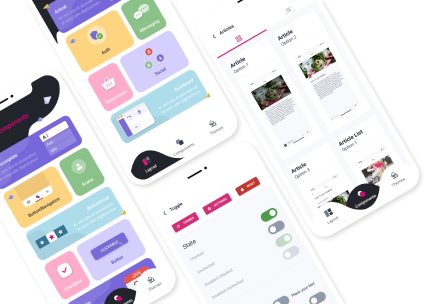Is Express JS Frontend or Backend?
3 min readIf you are a web developer, you might have heard of Express.js. It is a Node.js-based web application framework that provides a robust set of features for building web applications. However, many developers new to this framework often wonder if Express.js is frontend or backend. In this article, we will explore the answer to this question and provide a comprehensive understanding of Express.js.
What is Express JS?
Express.js is a popular and flexible web application framework built on top of Node.js. It provides an extensive set of tools for building web applications, APIs, and other server-side applications. Express.js is known for its minimalistic approach to web development and allows developers to create robust web applications with ease.

Express.js is a Backend Framework
Express.js is primarily used as a backend framework for building web applications. It is designed to handle HTTP requests and responses, manage data, and implement logic for the server-side of web applications. Express.js is often used in conjunction with other technologies such as databases, templating engines, and front-end frameworks like React.
One of the significant advantages of using Express.js as a backend framework is its flexibility. It allows developers to create custom middleware, which can be used to perform various tasks such as logging, authentication, and error handling. This makes it possible to build highly scalable and customizable web applications with ease.
Advantages of Using Express.js
Now that we have a good understanding of what Express.js is and how it can be used let's explore some of its advantages.
Minimalistic Approach
Express.js has a minimalistic approach to web development that makes it easy to learn and use. It provides only the essential features required for building robust web applications, making it less complicated than other web frameworks.
Flexibility
Express.js provides a high level of flexibility, allowing developers to create custom middleware and routes tailored to their specific needs. This makes it possible to build highly scalable and customizable web applications with ease.
Easy to Integrate
Express.js is designed to work seamlessly with other technologies such as databases, templating engines, and frontend frameworks. This makes it easy to integrate into your existing tech stack and start building web applications quickly.
FAQs
Q1. What is the difference between frontend and backend frameworks?
A frontend framework is a technology used to build the user interface of a web application, which includes HTML, CSS, and JavaScript. A backend framework is a technology used to build the server-side of a web application, which includes handling HTTP requests, managing data, and implementing logic for the server-side of web applications.
Q2. Can I use Express.js with React?
Yes, you can use Express.js with React. Express.js can be used to provide an API for clients to consume, while React can be used to build the user interface.
Q3. Is Express.js a suitable choice for building large-scale web applications?
Yes, Express.js is a suitable choice for building large-scale web applications. Its minimalistic approach and flexibility make it easy to scale and customize according to your needs.
Q4. What is middleware in Express.js?
Middleware in Express.js refers to functions that have access to the request and response objects, and the next function in the application's request-response cycle. Middleware functions can be used to perform various tasks such as logging, authentication, and error handling.
Q5. Can I use Express.js with a database?
Yes, you can use Express.js with a database. There are many libraries and modules available that allow you to connect to different databases such as MongoDB, MySQL, and PostgreSQL.
Conclusion
In conclusion, Express.js is primarily a backend framework used for building web applications, APIs, and other server-side applications. While it can be used as a frontend framework in certain cases, its primary focus is on server-side development. Express.js provides a minimalistic approach, flexibility, and easy integration, making it a popular choice among web developers.









